Oorja Development Solutions, a decentralized solar solutions provider, has launched solar-powered cold storage as a service in the Muzaffarpur district of Bihar. The cooling service, called “Oonnayan,” allows small and marginal farmers to store their perishable horticulture produce on a per-crate-per-day basis without paying the high upfront cost of technology acquisition.
To deploy this service, Oorja teamed up with Ecozen Solutions, a supplier of ‘Ecofrost’ range of decentralized solar cold rooms. Ecozen installed and commissioned the system and also provided training to run and operate the system. Oorja owns and operates the cold room and is responsible for farmer mobilization, customer acquisition, daily operations, repairs and maintenance, and payment collections for the service.
Cooling-as-a-service is quite significant for India, where around 20-30% of produce is wasted after harvest due to the non-availability of nearby cold storage facilities. Running cold storage facilities requires regular electricity but grid electricity in rural areas is often unreliable.
Solar-powered cold storage systems provide a solution, but these have found limited adoption among farmers as these systems require an upfront investment of typically around INR 12–15 lakh (US$ 16,000 – 20,000) per unit for a 5 MT solar-powered cold storage.
“While the government provides capital subsidies, these subsidies are generally available only to individual farmers up to 35-50%. The remainder of the project costs must be met by the farmer, making them inaccessible to most of the farming population,” said Clementine Chambon, Oorja Development Solutions co-founder and chief technology officer.
“Under “Oonnayan”, cooling is available as a service: farmers can buy access to refrigerated space within a cold room installed conveniently at the market gate. They pay according to the amount of produce stored, usually for several days or weeks. Cooling as-a-service will allow farmers to store their produce without spoilage, extend the shelf life and the visual appearance of produce, and enable them to fetch a higher market price instead of making a distress sale immediately after harvest,” Clementine added.
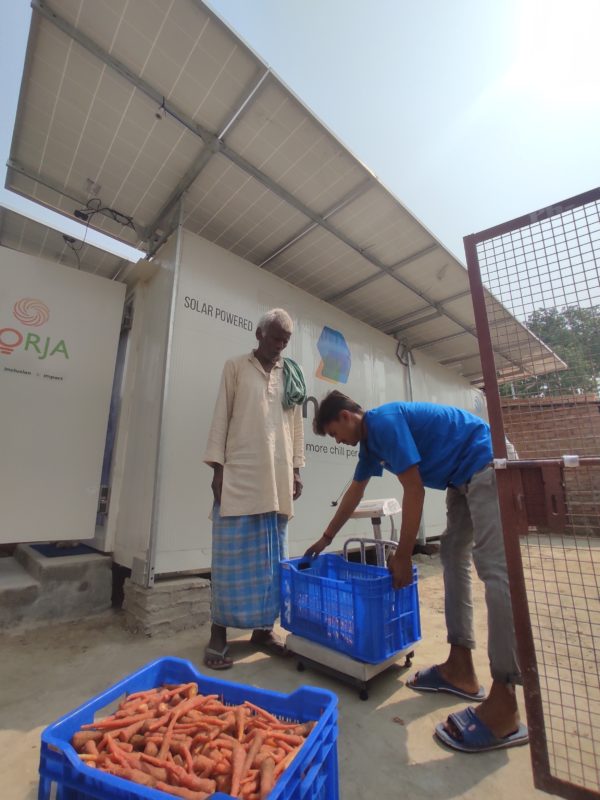
The system
The Ecofrost solar-powered micro cold storage can accommodate about 5-6 metric tonnes of perishable produce. It relies on a polycrystalline solar panel array of 5 kWp capacity mounted on the container roof and stores power using phase-change-material-based thermal energy storage rather than conventional batteries or diesel. The thermal energy storage system can provide cooling backup for up to 36 hours in cloudy weather.
The system can also operate off the grid or generator set. In extended cloudy periods, the solar cold storage room will automatically switch to the available alternative power supply. Oorja has opted for grid backup as the most low-carbon backup power source.
Ecofrost charges itself completely with just 5-6 hours of grid power. The system can be operated and monitored remotely via an Android App. The Internet of Things (IOT)-enabled app provides real-time data on the produce stored in the system and predictive maintenance alerts, reducing downtime.
The system maintains a controlled interior temperature of 4-13°C and high humidity up to 85-95% to prevent the perishable produce from any rapid degradation.
This content is protected by copyright and may not be reused. If you want to cooperate with us and would like to reuse some of our content, please contact: editors@pv-magazine.com.
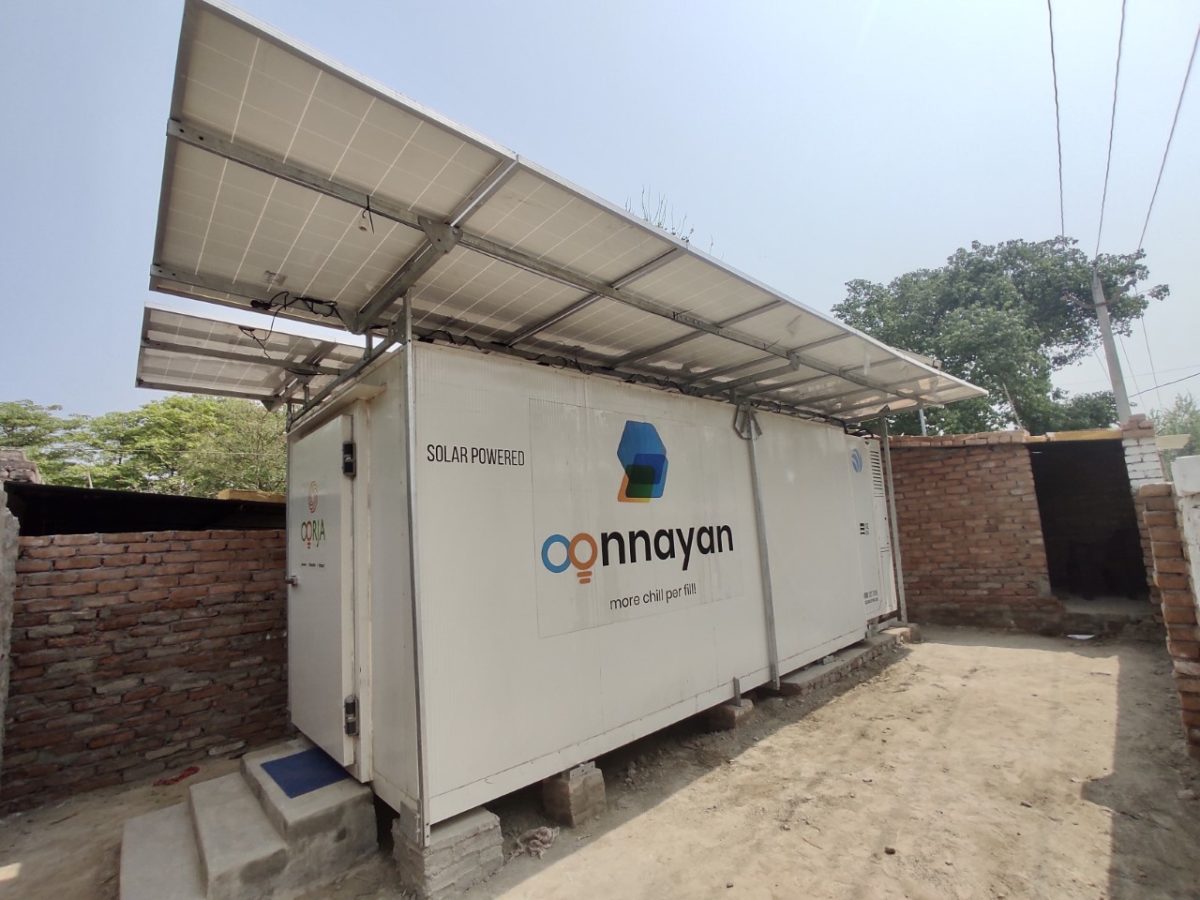



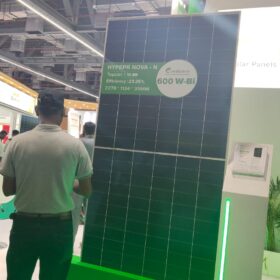
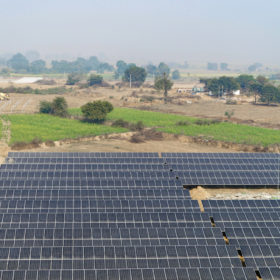
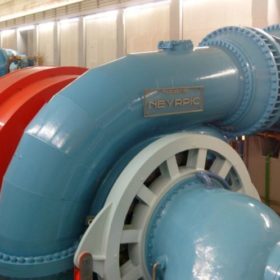

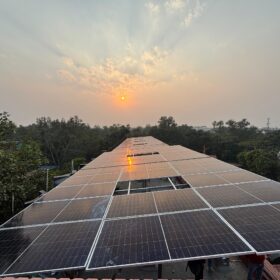
Very interesting product I need trade inquiry and technical specification.
Very interesting model. I want to visit on sites in this week to understand in detail. Kindly share the contact point of Muzaffarpur.
Good product